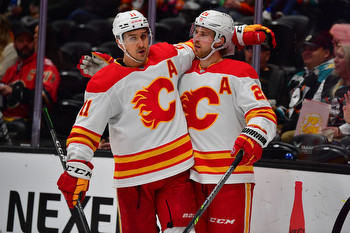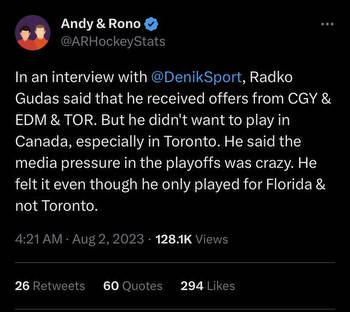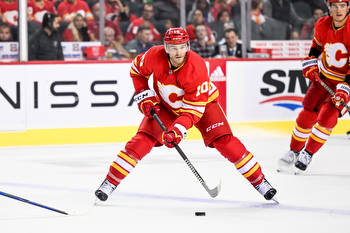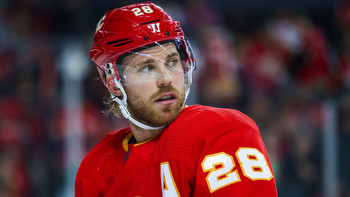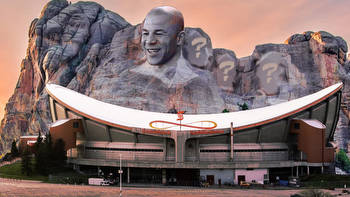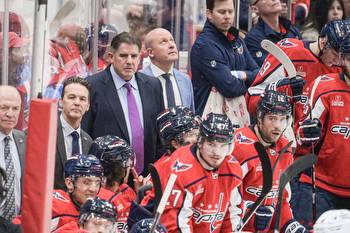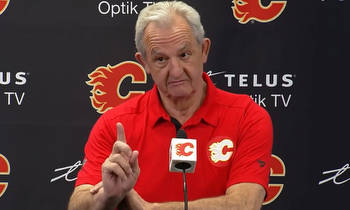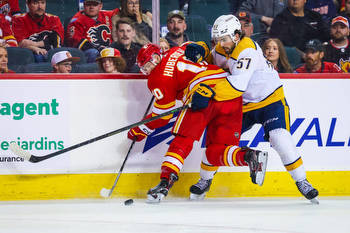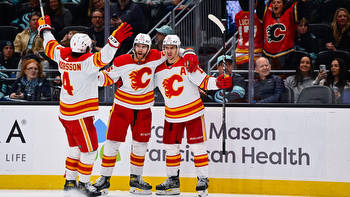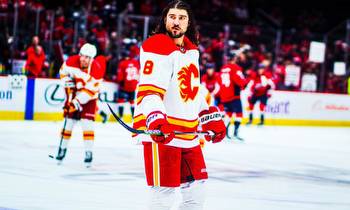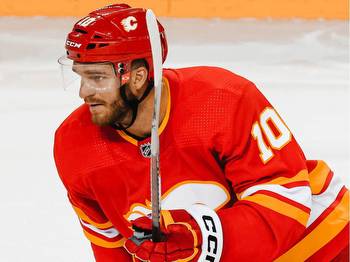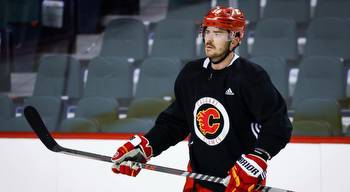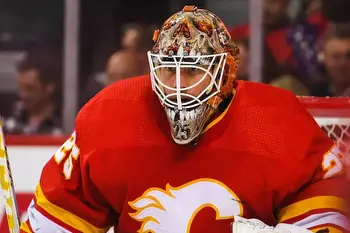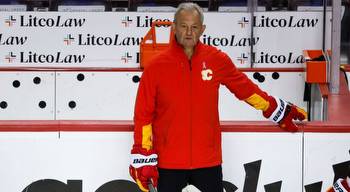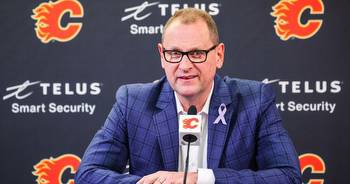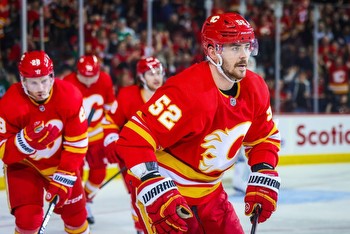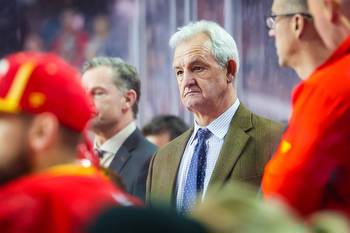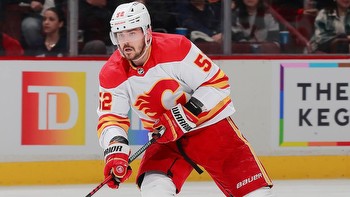What will Craig Conroy bring to the mix as the new Flames GM?
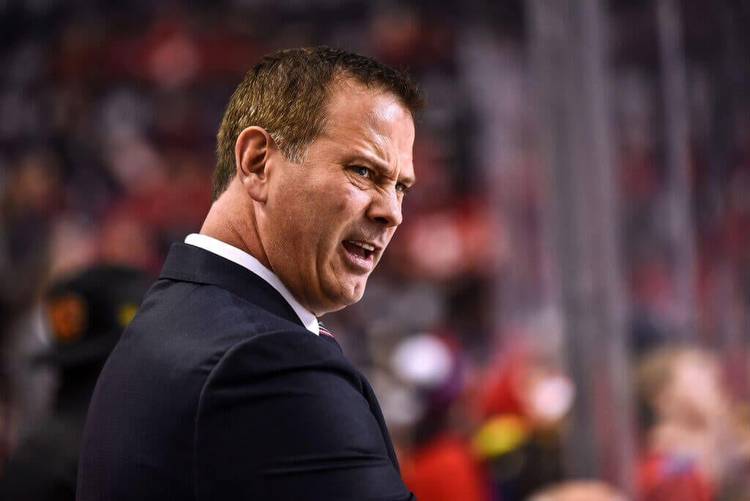
I never thought much about the NHL career of Craig Conroy until the day in March 2001 when he was traded to the Calgary Flames by the St. Louis Blues for Cory Stillman. It was a puzzling deal at the time, mostly because the Flames needed scoring, and yet they traded away one of their few productive offensive players for a player with a reputation as a defensive center.
To get to the bottom of things, I reached out to Al MacInnis, who was then playing defense for the Blues but had previously played for Calgary. As it turned out, MacInnis had just said goodbye to Conroy, along with a long list of his Blues teammates, when he called back. Eventually, we got around to talking about the hockey implications of the trade, but I distinctly remember his first words about Conroy were: “You’re going to love this guy.”
Which was an intriguing entry point to the interview and ultimately proved to be both true and prophetic.
What MacInnis was speaking of then is what we now euphemistically refer to as the intangibles in professional team sport that make the whole thing work. An NHL team is a complicated piece of machinery that needs the necessary lubricant to function properly. The pieces all need to mesh — and soon after his arrival as a player in Calgary, it became clear that Conroy would help facilitate that department. But even Calgary’s best player at the time, Jarome Iginla, wasn’t sure at the time about the Stillman-Conroy trade.
Iginla eventually came around once he got to know Conroy, in part because he discovered there was more to Conroy’s game than just defense. Conroy became Iginla’s center following an injury to Marc Savard and the two thrived playing together. In Conroy’s first full season with Calgary, he scored 75 points in 81 games; and if that sounds modest, you’ve forgotten what the NHL was like in 2002. Iginla led the league in scoring with 96 points. Only three others (Markus Naslund, Todd Bertuzzi and Mats Sundin) managed 80 or more. Conroy’s 75 left him 15th overall.
In 2004, it was the trio of Iginla, Conroy and Martin Gelinas, plus the goaltending of Miikka Kiprusoff, that led Calgary to the Stanley Cup Final — a team that proved to be far greater than the sum of its individual parts, something that will be needed again to get the Flames back on a winning track after missing the playoffs in 2022-23.
And this is where we move from Conroy’s past to Conroy’s present. On Tuesday, after serving a 12-year apprenticeship, the Flames confirmed that Conroy would become the eighth general manager in team history, replacing Brad Treliving. Conroy retired as a player in February of 2011 and immediately joined the front office as a special assistant to then-general manager Jay Feaster. He was bumped up to assistant general manager in June of 2014, and has been working in the Flames front office ever since.
Don Maloney, who was promoted to president of hockey operations following Treliving’s decision to mutually part ways with the team, conducted a nearly month-long search for Treliving’s replacement and ultimately settled on Conroy, the logical and most qualified internal candidate.
According to MacInnis, the same people skills that made Conroy such a popular and important teammate will also serve him well in his new job.
“To get everybody on the same page and pulling the rope in the same direction is even harder today than when we were playing,” said MacInnis. “Craig Conroy, as a teammate, was that type of player. He got along with everybody. He spoke with everybody. He’d go for a beer with everybody. His personality, his positive energy — everything about him is so contagious. His energy is second to none when he’s around — and he’s going to bring that to this job. The players know him, and they know that about him, and I’m sure they’re looking forward to playing for him.”
Years ago, there was an old saying in professional sports that you don’t hear as often today: Nice guys finish last. And that might have even been true once upon a time. But nowadays, the key to building any successful organization is managing people and creating a positive work environment. In Calgary, unquestionably, that’s needed. Last year was a mess, in part because of the friction between a hard-case coach, Darryl Sutter, and a whole lot of players that couldn’t function in the environment he created. It left the organization at a crossroads.
If they’d continued with Sutter, many of the players heading into the final years of their contracts — notably Elias Lindholm, Mikael Backlund and Noah Hanifin — almost certainly would be playing out their contracts so they could explore free agency next July. They still might. Their collective message, in exit interviews, was: Let’s see what happens next.
This is what happened next: Sutter was fired as coach, and his replacement behind the bench will be the most pressing piece of business that Conroy will have to deal with in his first days on the job.
In all, Conroy played 1,009 games in his NHL career, after being drafted in the sixth round by the Montreal Canadiens in the 1990 NHL Draft. Accordingly, he knows what it’s like to fight and chew your way to the NHL level, and then make a career out of it once you get there.
There’s a competitive side to the nice-guy image — if that fire didn’t burn brightly, he wouldn’t have had the success he did. As a Canadiens prospect, he once fought star goalie Patrick Roy — in his first-ever NHL practice, after firing a shot, in Roy’s estimation, too close to his head.
MacInnis warned: Don’t underestimate Conroy’s competitive streak just because he has this winning personality. He wants to win as badly as anyone, and will put in the work and the hours needed to get the job done.
“First of all, if he works half as hard in the front office as he did on the ice, that (work ethic) will never be a question,” said MacInnis. “Second of all, still being involved in the game, the most important thing for a general manager is to be able to evaluate talent. I know there’s a lot of number crunching and salary caps and analytics that goes on, but at the end of the day, a good manager still has to evaluate talent — and there’s no question in my mind that Craig Conroy can do that. And the next most important thing is communication skills, so check another box there.
“I mean, he’s ready. I don’t think there’s one friend or former teammate that Conny ever had that isn’t happy for him.”
The Flames went into the 2022-23 season as one of the top five betting choices to win the Stanley Cup, but ultimately missed the playoffs, with 93 points. The soon-to-be Stanley Cup finalist Florida Panthers had 92. Of course, Florida has two ex-Flames players, Sam Bennett and Matthew Tkachuk, lighting it up in the postseason. That stings in Calgary. A year ago, current Flame Nazem Kadri starred for Colorado in their Stanley Cup run.
Kadri had an underachieving first season in Calgary and is signed to play here for six more. He needs to be better. So does Jonathan Huberdeau, the principal player coming to Calgary from Florida in the Tkachuk trade. Huberdeau was coming off a 115-point season when the Flames acquired him. He needs to get closer to those numbers, rather than the 55 he put up for the Flames this year.
Think back to Huberdeau’s exit interview. His take was, “I didn’t lose my talent in five months.” No, he didn’t. But he misplaced it. And he needs to find it again. Putting Conroy in charge represents an important and necessary reset for a team that has been yoyoing back and forth, tantalizing fans with hope in some years (2019, 2022) and subjecting them to underachieving misery in others (2020, 2023).
“This guy has done everything he’s been asked to do,” said MacInnis, of Conroy. “If there’s such a thing as loyalty to an organization, he’s shown that. He’s touched every level of the organization. I’m sure he’s got a heck of a pulse on the team and what everyone’s thinking. Why go anywhere else when the answer is right there in your backyard? He’s earned this.”
The people skills that made Conroy such a popular figure in every dressing room he ever habituated are going to be put to the test here. But he seems uniquely qualified. Making a good first impression is valuable, but it isn’t the goal. Winning in real time is. But this is an important and necessary first step.









